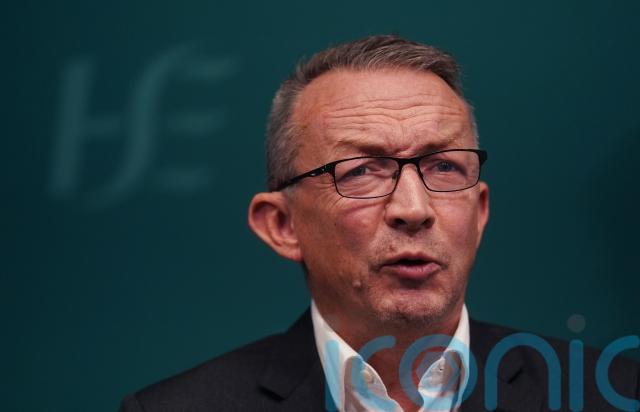
The situation facing Ireland’s healthcare services is matching the worst-case scenarios, the boss of the HSE has said.
“Currently, we’re matching or exceeding our most pessimistic model, which, as we said before, is very concerning,” HSE interim chief executive Stephen Mulvany said on Thursday.
“Flu is already at levels that make this an exceptional season, plus we still have significantly high levels of Covid and RSV (respiratory syncytial virus).”
He said that as of January 7, flu was seen to be continuing to rise, and that they could not yet predict when it would peak.
“We will continue to deal with high levels of flu and other viruses through February and likely into March,” he added.
Hospitals across Ireland have been dealing with an unprecedented demand for emergency care in recent weeks, which has led to hundreds of patients waiting on trolleys for a bed.
A number of actions have been taken to ease the pressure on hospitals, including asking consultants to work during three weekend in January, half of GP clinics extending their hours, and the use of 180 private beds.
The Government and health authorities have defended their winter plan by saying that the current pressures were unforeseen – and that countries across Europe are facing similar pressures for unscheduled care.
Speaking during a media briefing in Dublin, Mr Mulvany said that in some of the worst situations, “you can see patients lined up on trolleys, very very close together, with staff trying to do their best to care for them.”
“It’s very upsetting for patients, it’s very difficult and challenging for staff, and it’s impossible to stand over.”
HSE chief clinical officer Dr Colm Henry said that how bad the flu season is was particularly hard to predict, as the modelling of Covid had “very predictable behaviours”.
“So it was certainly easier to model against one virus which had a fairly predictable rate of behaviour and also, marking that against different ways of behaviour of the population which were reduced down to very simple things because of social restrictions at the time,” he said.

“Now we’re modelling against a number of viruses in a society where there’s millions of interactions every hour, every day.
“As such, it’s not nearly as simple as it was because, thankfully, society is completely open and there’s multiple potentials for transmission of any one of those viruses at any one time.”
Dr Henry said that the new Omicron sub-variant XBB1.5, also known as the Kraken, has gone “rapidly” from a small number of cases in the US to between 25-30%.
Less than five cases of this sub-lineage have been confirmed in Ireland, according to the latest data.
He said that some countries have estimated that this variant of interest has a “significant growth advantage” to previous Omicron variants, which could lead to more cases globally.
“Omicron (variants), we know, all very transmissible, easy to catch. As each new variant comes in place with its mutation it displaces previous variants, but they do not have the same severity of illness that we saw in earlier versions of Covid.”
Dr Henry said there had been a “relentless climb” of flu-like illnesses in GP practices for eight consecutive weeks.
“This flu season started earlier, and has been building up longer, and is peaking higher than the flu season in many years and the type of flu – AH3 – which unfortunately correlates closely with illness, particularly in older people,” he said.
He added that there was “widespread influenza activity” right across Europe, adding that “no healthcare system is escaping the pressure of this”.
“It’s end-to-end pressure for unscheduled care presentations,” he said.
People have been asked to stay at home when they’re at their most sick, as that’s when a person is the most likely to shed virus, and have been “strongly” urged to wear masks.
Availing of a Covid or flu vaccination has also been encouraged, with Mr Mulvany expressing some concern that just 24% of healthcare workers have been fully boosted against Covid – though he said this may be based on inaccurate data.
Despite the pressures, Dr Henry urged people to attend emergency departments if they do need urgent care.
“I think the advice we’ve given is for people to consider all the different ways they can access unscheduled care,” Dr Henry said.
“Those who need urgent or emergency care, we’re urging them to go to emergency departments because our staff there no matter how busy things are, can triage and can identify those at greatest need and will channel them through to the most rapid possible review should they be unstable.”
Subscribe or register today to discover more from DonegalLive.ie
Buy the e-paper of the Donegal Democrat, Donegal People's Press, Donegal Post and Inish Times here for instant access to Donegal's premier news titles.
Keep up with the latest news from Donegal with our daily newsletter featuring the most important stories of the day delivered to your inbox every evening at 5pm.